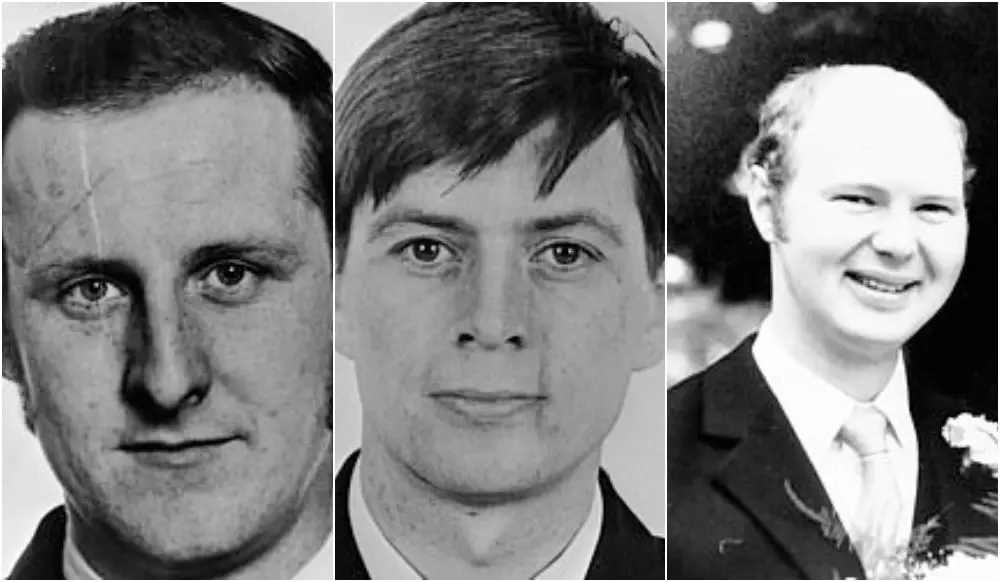
Committal proceedings against one of the so-called Columbia Three who is charged with murdering three police officers in 1982 has been stalled over a legal ‘conundrum’ involving his wish to use material from the Stalker-Sampson inquests at his trial.
Martin McCauley (62) from Naas, County Kildare was extradited in January for the murders of RUC officers Sergeant Sean Quinn, and Constables Allan McCloy and Paul Hamilton
They were killed in an IRA explosion at Kinnego Embankment near Lurgan in October 1982 when their unmarked car drove over a bomb which was detonated by a command wire.
On first appearing before Craigavon Magistrates Court a detective explained DNA matching McCauley’s was found on cigarette butts discarded at the scene.
One of the so-called Colombia Three, he and two others were arrested in 2001 accused of training rebel FARC guerrilla forces.
Although initially cleared, they were convicted on appeal and sentenced to 17 years in jail but fled Columbia in 2004, re-emerging in the Republic of Ireland the following year.
The RUC murders case was scheduled before the most recent sitting to return McCauley for trial however defence counsel advised this could not proceed.
He explained there is material relating to separate cases of the shooting dead of unarmed males – three in Craigavon, two in Armagh and a 17-year-old child,
The then Coroner John Leckey viewed these as linked and the inquests were dealt with collectively, until May 2024 when the Legacy Act became law.
The defence said during McCauley’s extradition proceedings, “The Chief Constable put on notice that we wish to refer to and rely upon this material. We were subject to undertakings that the material was only for the inquest and nothing outside the coronial court.”
He continued, “We seek to rely on this for the current matters and the request was made on 24 March and eventually a reply was received from the Legacy Investigation Branch. Why it took this long is beyond my comprehension and the tone is quite striking. It suggests our request is ‘procedurally improper and fundamentally unfair’ . We are bewildered because we are subject to the undertakings.”
It was pointed out McCauley had successfully appealed a firearms conviction in 2014 and, “That judgement made very uncomfortable reading for the RUC and the Security Services. Yet we are confronted with an anomalous situation of being in possession of a substantial chunk of the Stalker-Sampson material and according to the PSNI we are not being released from our undertaking.”
District Judge Natasha Fitzsimmons enquired who the undertaking was with and was informed it was the coroner whom, “We initially approached to have ourselves released, but he passed it to the PSNI on the basis the coronial proceedings were over, This means the material is in possession of and remains the property of the PSNI with whom the decision was placed”
The defence insisted to suggest McCauley could have a fair trial without access to the material is, “Offensive and absurd. The Chief Constable needs to think again. We cannot presently even refer to the material without putting ourselves in breach of our undertakings and that’s the conundrum.”
He requested an adjournment to allow further engagement with the PSNI and “hopefully have a sensible response.”
Prosecuting counsel said it is necessary to ascertain, “What the actual dispute is and between which parties because this tripartite between the PPS, defence and PSNI, as well as establishing a mechanism to resolve it.”
Judge Fitzsimmons allowed an adjournment until May 30 when an update is expected around what is in dispute and if there is an agreed way forward.






